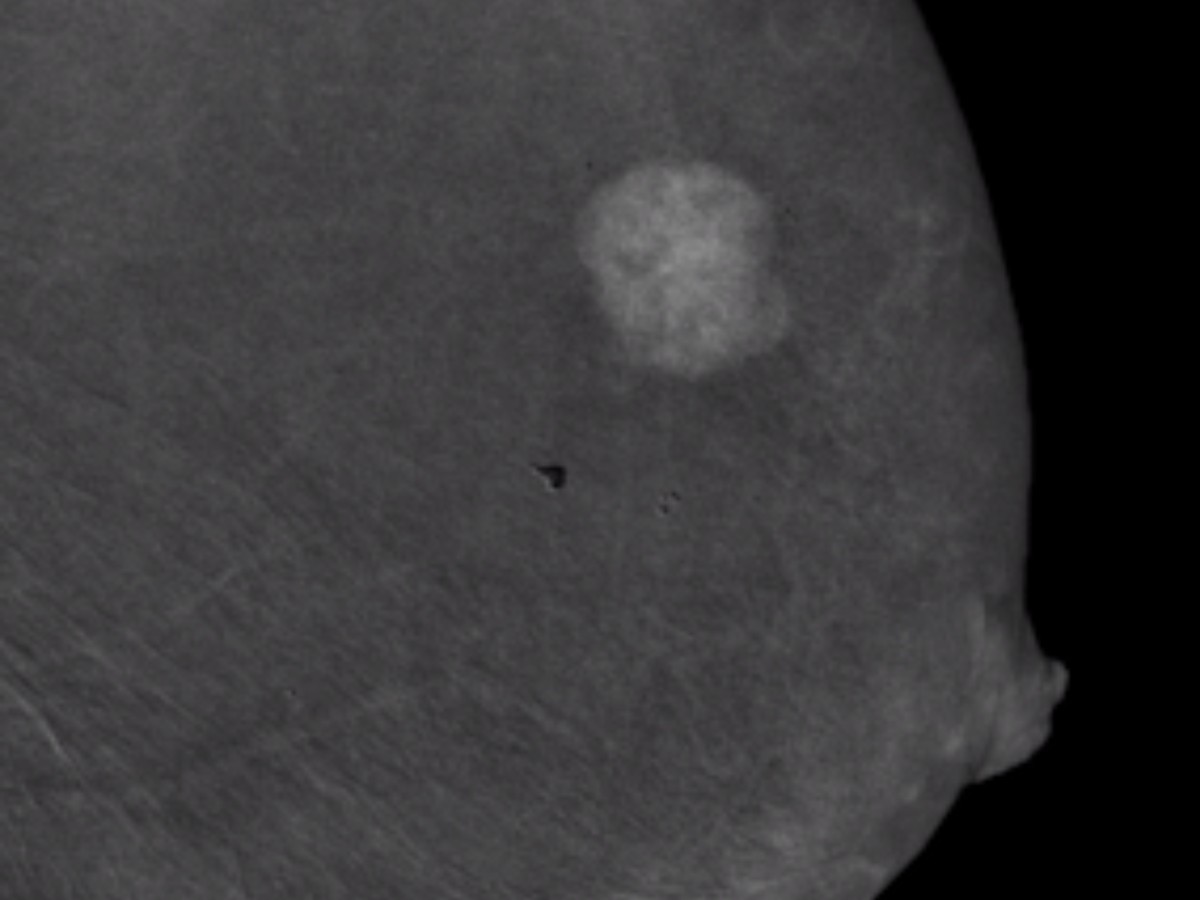The COVID-19 pandemic boldly accentuated the disparities that subsist in healthcare access, both within the United States and worldwide. Medical deserts exist in the US, where clinics in underserved areas lack adequate staffing and resources, paralleling challenges faced in low and middle-income countries. In both scenarios, tertiary care facilities often remain distant from vulnerable populations, making them unaffordable for the underinsured or uninsured. Barriers such as cost and distance hinder access to critical healthcare services such as breast cancer screening and women’s breast health.
In the Radiological Society of North America's (RSNA) recent RadioGraphics podcast sponsored by GE HealthCare, two renowned breast radiologists, Dr. John R. Scheel, a breast radiologist, Chair and Director of the Breast Health Global Initiative (BHGI) and Professor in the Breast Imaging Section and Vice Chair of Global Health in the Department of Clinical Radiology and Radiological Sciences at Vanderbilt University Medical Center, and Dr. Wei Yang, a breast radiologist and Professor & Robert D. Moreton Distinguished Chair in Breast Imaging at the University of Texas MD Anderson Cancer Center, shared their insights about the implementation of changes aimed at benefiting women's health on a global scale. Their discussion shed light on the critical importance of addressing breast care awareness and education, as well as ensuring equitable care and training efforts worldwide to drive early detection of breast cancer in underserved communities. They discussed various factors and insights to guide clinical professionals in implementing changes, from technological advancements to cultural considerations, and how partnerships can play a role in reducing disparities in women's health.
Addressing vulnerabilities in the US and globally
The discussion emphasized the growing gap in healthcare accessibility both in the United States and globally. Dr. Scheel stressed the need to address issues such as medical deserts, understaffed clinics, and limited resources in underserved populations.
“Having lived in New Mexico and driven throughout the United States,” noted Dr. Scheel, “I’ve seen the healthcare deserts that exist within our own [US] borders and how they can mimic and mirror what we consider not first-world countries.”
Dr. Yang echoed these thoughts and added that workforce shortages, demographic shifts, and cultural barriers in the US and globally can further compound healthcare challenges. To address these barriers, Dr. Scheel discussed his work with RAD-AID, partnering with clinics serving underserved populations in the US and other countries across the globe. Their approach involves capacity-building through training, hiring navigators, upgrading equipment, strengthening referral pathways, and improving IT infrastructure to enable remote reading. By implementing these interventions, they have helped around 60,000 women receive breast and cervical cancer screenings and follow-up care, demonstrating that such initiatives can significantly impact vulnerable populations' health outcomes.
Dr. Yang highlighted that challenges in healthcare access are not confined to the United States. She shared experiences from countries like Indonesia and Uganda, where healthcare systems face unique obstacles. These include limited access to mammography and the reliance on clinical exams and breast ultrasounds, which are often subject to resource constraints and educational opportunities. Cultural barriers, such as fear and mistrust of healthcare facilities, can also delay seeking medical care.
“In Indonesia, a significant proportion of the breast health is administered by non-physicians,” explained Dr. Yang about her experience internationally, “but healthcare workers who are dedicated and understand the needs of the majority of the population that is housed in villages. They’re called the village health team. It was a real privilege for me to walk through that journey and understand their greatest needs.”
Building relationships and trust within the community
Both experts stressed the importance of a multidisciplinary approach to improving breast health. In the US and globally, collaboration among various healthcare professionals, including radiologists, pathologists, surgeons, oncologists, and radiation oncologists, plays a crucial role in providing comprehensive care. This approach helps ensure that women with breast conditions receive accurate diagnoses and timely treatment.
“I also found it very helpful from the start of my global health experience,” explained Dr. Yang, “to partner with breast cancer survivors. They are the most attuned to the barriers that they personally encounter. And so, they’re also the most capable of going into the communities and dispelling the myths and the cultural beliefs that we’ve found prevalent through Uganda, Peru, and other countries I’ve worked in.”
Improving breast health education for clinicians
Instead of implementing changes that focus on setting up an infrastructure for breast cancer screening, Dr. Yang and Dr. Scheel emphasized the importance of providing education about the importance of diagnostic imaging and accurate clinical breast examination, which includes taking a good history, tissue sampling, and pathology, as well as a robust database that tracks patient outcomes and screening quality assurance.
“These are critical prerequisites to a successful screening program,” explained Dr. Yang. “Each screening program is dependent on multiple components. So, it’s better to start with making sure that a health system can deal with clinically apparent disease before you start adding screening and asymptomatic disease.”
Dr. Yang’s focus is on getting out into the community and educating providers about how to recognize breast cancer, working with the village health teams and breast cancer survivors to provide accurate information to a public that’s more receptive, hearing it from people in their communities.
Training the next generation of healthcare leaders
Dr. Yang and Dr. Scheel emphasized the significance of training the next generation of healthcare leaders. They discussed programs that combine didactic learning with practical experience in the field. By fostering curiosity and enabling on-site training, these initiatives empower local healthcare workers to become trainers themselves, facilitating knowledge transfer and improving care quality.
“The goal of global health is to make sure that vulnerable communities are empowered to stand on their own,” explained Dr. Yang. “We don’t want to develop a culture of dependence.”
A bidirectional exchange of knowledge is essential for global health initiatives to succeed. It involves not only providing training but also learning from the experiences of healthcare professionals in other countries. Collaboration, mentorship, and the sharing of resources, both online and in person, create a mutually beneficial environment for improving healthcare systems worldwide.
As a result of knowledge sharing, evidence-based practices, and guidelines must be developed using data that reflects the unique challenges and disease patterns within specific populations. Demonstrating positive impact through measurable outcomes is crucial for driving change and improving healthcare globally.
Leveraging technology to transform breast care
Both speakers agreed on the pivotal role of technology in transforming women's health globally. Dr. Scheel emphasized the importance of adapting to the digital age, where younger generations expect rapid access to information and efficient processes. This shift requires healthcare systems to leverage technology for quicker and more impactful outcomes.
Dr. Yang underscored the potential of technology in remote areas with limited resources. She highlighted the significance of portable and handheld ultrasound equipment that can be intelligently linked to mobile devices. This approach would enable remote acquisition of medical images, which can then be interpreted by experts in more centralized locations. This innovative approach has the potential to bridge the gap in breast health services in underserved regions.
Both Dr. Scheel and Dr. Yang stressed the importance of collaboration with industry leaders as a game-changer in improving women's health globally. Industry partnerships can provide valuable resources, expertise, and funding to support initiatives aimed at reducing health disparities.
Focusing on a collaborative future in global women’s health
Improving breast healthcare globally requires accelerating access to breast cancer awareness, education, and detection. To that end, clinicians are encouraged to focus on working with vulnerable and underserved populations, recognizing the significance of cultural awareness and sensitivity when implementing changes in women’s health. By working together, learning from experiences in diverse healthcare settings, and partnering with industry for valuable resources, clinicians can help make strides in more equitable breast healthcare for all.
RELATED CONTENT
Learn more about GE HealthCare's mammography breast imaging solutions, here.
Learn more about GE HealthCare's AI solution to help accelerate breast cancer detection, MyBreastAI Suite.*
RSNA RadioGraphics Podcast, sponsored by GE HealthCare: Accelerating access to education and early breast cancer detection
DISCLAIMER
The podcast discussion represents the clinical practice, views and experiences of Dr. John Scheel with Vanderbilt University Medical Center and Dr. Wei Yang with MD Anderson Cancer Center.
Factors that should be considered by clinicians include cleared and approved product labeling and guidelines provided by medically sourced organizations. Dr. Scheel and Dr. Yang specialize in breast health and did not receive financial support from GE HealthCare.
* MyBreastAI suite is a commercial offering that includes an AI platform optimized for Mammography, ProFound AI for DBT, SecondLook for 2D Mammography and PowerLook® Density Assessment. These three applications are provided by iCAD. MyBreastAI Suite is compatible with the latest versions of iCAD, Inc. as of November 14, 2023.
Not all products or features are available in all geographies. Check with your local GE HealthCare representative for availability in your country.


